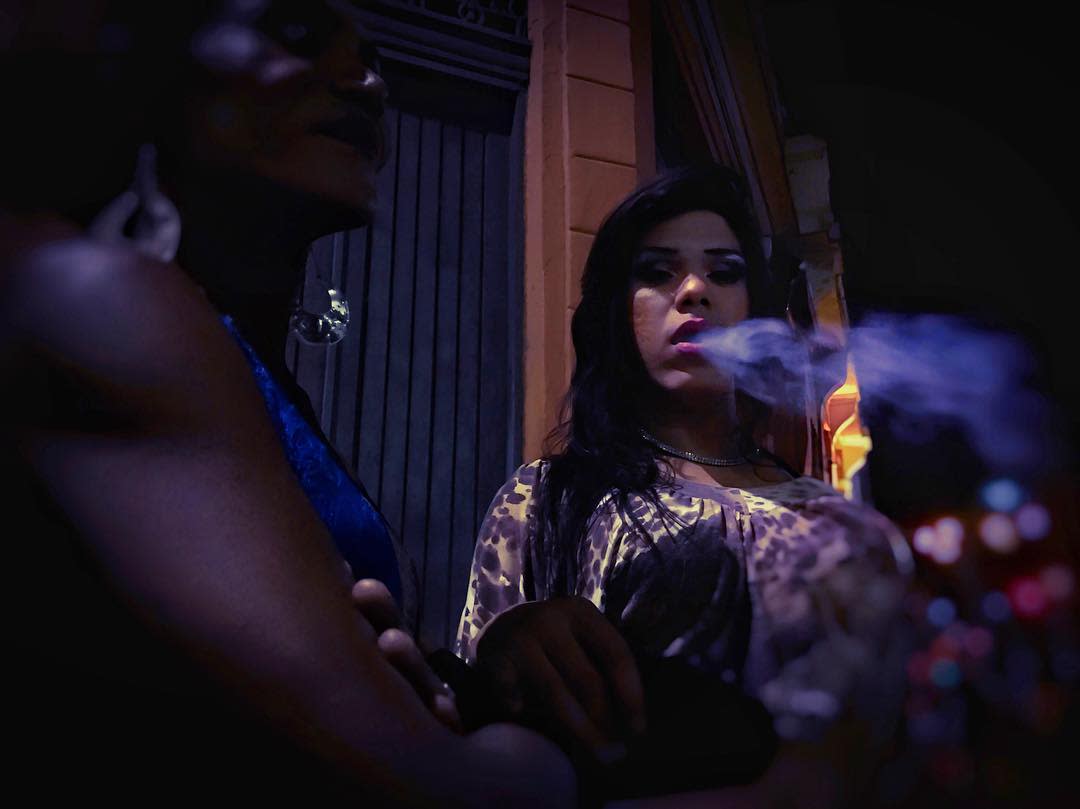Zine :
Lien original : Ill Will, par Guy Hocquenghem
En français : dans L’après-mai des faunes
How does it happen that movements for liberation wind up crushing subversive energy? How is it that scandalously improper and unexpected uses of self wind up codified into well-behaved disciplines, becoming straight jackets of enforced speech and identity? In our flight from the violence of dominant forms of subjectivity, why do we so often feel like we need to pin each other down to a new identity? In this excerpt from his Gay Liberation after May ′68, appearing with Duke University Press this April, Guy Hocquenghem offers a powerful diagnosis of an emancipatory movement that has become frozen, as well as a proposal for relaunching the experiment.
Part of our series Desertions, which maps the manifold forms of treason, refusal, and defection from dominant images of community.
A Shameless Transversalism
Let’s invent slits and slopes that slice hierarchies and the specializations according to new layers. We cut up “social reality” how it suits us; risking confusion, we systematically pass from one order to another (aesthetics, politics, turn-ons, theory); we transversalize by transposing what happens here somewhere else without rhyme nor reason, not in order to make everything the same — for we need potential differences to power our cut. We don’t seek to create hybrids, to marry everything through limp mediations, but to make everything intersect, to “interpellate” as they say, fags with motorcycles, Fourier with “drugs,” leftism with cash.
Money: it’s sort of the bourgeois transversalism, this universalization that is the simplest way to pull everything down to the same scale. Our movement responds to this: instead of putting everything in the same key, leveling it all out to make anything exchangeable, we transmute from one order to another practically. It’s not a matter of saying: love, family, profession, science, war, everything is revalued or devalued according to a single scale. We can’t expect anything from a “universal exchange,” even though its reign has made everything possible for us; but we have everything to desire from the unmediated transmutation of one “nature” into another. Not what’s exchangeable, but transformable, or replaceable bit by bit. Transgender, for example, is not the middle between man and woman, or the universal mediator (man into woman, woman into man); it’s one part of a world transferred into another like we pass from one universe to another universe parallel to the first (or perpendicular, or askew . . . ); or rather, it’s a million inappropriate gestures, transferred features, events (growing breasts, removing hair) happening in as untimely a way as the appearing or disappearing of a feline smile in Alice in Wonderland.

We aren’t looking for new material. We produce the unexpected. The new only ever appears wherever the old assigns it its place. Producing the unexpected, the improper — a flying carpet that rescues us from taking root in shame and propriety — this transversalization provides a response to the mobile warfare of capital (its fluid and instantaneous displacement from one continent to another by the forces of multinationals), a response to its slipperiness. In the battle led by capital, territorial defenses (the political and moral defense against capitalist cynicism; the theoretical defense, truth against formalism; the syndicalist defense, labor force against the shape-shifting vampire; the sentimental defense, against dehumanization by machines) are just like the Maginot Line facing German tanks. Humanist progressivism is still fighting the last war. It blames capital for being stateless, without family, without morals, whereas all this baggage disables us, delivers us unarmed and tied up to the shape-shifting circulation of money.
Transversalism, transgender, versatility. Slide from one order to another, following the rifts. Social surfaces, smoothed over by the waves of repetitions without jouissance, no longer show us anything but the usual scenery to look at, a flat horizon of dull convictions without adventure. But if a crack appears, a split: let’s go to a new layer, cut into the raw tissue, and suddenly, a freely flowing vein will open, new smells bubbling up with unimagined desires. But theory will never break or crack its own glass, not any more than the flow of cash will cut through the ocean of the monetary system. Throwing a tomato works against someone making a speech, as we discovered in May, but so does a very specific kind of touch against political attacks.
Enough with the well-behaved scientific and interdisciplinary transversalities, with institutional analysis used to confirm all the fears, or to spice up restructuring and reforms. Journey through the institutions: Dutschke already spoke about it. Does this just mean adding a new kind of tourism, beyond nations and countries, in the air-conditioned buses of new institutional-internship assignments, training, professional audits — where the windshield of analysis protects the researcher?
Not here. A shameless, slutty transversalism, having lost all modesty — i.e., all sense of what’s appropriate — that endlessly tries to put square pegs in round holes, losing its identity while gaining it, lewd when accepted as theoretical, “untimely.” Fleeting. Spinning in a spiral. Like a journey through time: fully present at every instant, but cutting another path at the same time. Confusing the order of causes and consequences, because it tangles these big strings through determining first after, and then before. Carving up the worm of order.
And where is your landmark movement in all of this? A FHAR1 ball and chain attached to the token homosexual’s foot, a heavy collar whose bells alert the entire Order of your movements at every moment. You must choose: remain motionless or signal where you are, where you are coming from, where you are going. Militant homosexual revolutionary here, ding dong ding; yet I had believed that at this level — it was so specific, so local, compared to the old organized politics — we would never be pinned down by social entomology.
The homosexual movements are done. Certainly, they will still develop, bring about changes in conditions for fags. But as movements, they are dead. The internal spring that makes them work is at the end of its life span; they’ve used up all the energy that could arise from the framework they were given.

Some indications: the issue of the magazine Recherches published before the summer of ’73 by a group that would no longer agree to be seen as part of the FHAR, as well as some women not of the Mouvement de libération des femmes (MLF) persuasion, under the title “About the Shattered FHAR and MLF.” Even Le nouvel observateur mentioned that this issue broke with a FHAR whose whereabouts no one knew any longer. In the USA, Gay Lib no longer exists as a centralized movement; it split into groups that either don’t give a shit about homosexual liberation in general (trans people, sadomasochists ) or who violently attack the very idea of a homosexual movement. One example is the “revolutionary effeminists,” newly born from the rubble of Gay Lib (since June ’72). This is how they begin their Manifesto, which caused quite a stir: “We, the…effeminists…invite all like-minded men to join with us in making our declaration of independence from gay liberation and all the other male ideologies…”
In any case, today the FHAR has fortunately split into more specific concerns than at its beginning. An American friend, attending for the first time what we still call a general assembly of the FHAR (a gigantic cruising site on six floors of a university building, probably the most considerable cruising space in Paris, if not in Europe) asked: What is it supposed to be? He was hoping to launch a discussion that our answer — “it’s the general assembly” — would have brought into militant terms. But this place is not supposed to be anything: it rejoins itself and rejoices in itself each week. Thus the FHAR has really transformed Paris’s homosexual geography — and that’s already not so bad, having removed the police threat for the time being.
Meanwhile all kinds of indications allow us to imagine that a scope of homosexual movement, however narrow and fragile it might be, has recently emerged from the FHAR. It’s as true for the news media as for public gardens — I’ve been surprised at nights in the Tuileries where fags armed with clubs handle “hooligans,” or even the cops.
We can see it: thirsting for other modes of organizing than the FHAR doesn’t mean giving up on all “homosexual militancy.” In 1973, the pervasiveness of militant homosexual movements linked to leftism in Europe (Holland, Denmark, West Germany, Italy) shows that a traditional “political space” is being taken over. But how sad is political space. A demo of fags down the Kurfürstendamm in West Berlin, chanting against sexual racism, like it’s properly new and not at all untimely…
Fake Unities
The very term homosexual gets in the way, with what it implies of guaranteed homogeneity. It’s too transparent, our movements are much more hetero than homo. We don’t aim to be faithful to ourselves, in permanent self-sameness.
There was a rule in the FHAR and MLF that said that only women had the right to speak about women and only fags had the right to speak about fags.
This rule assigns one speech to one subject, forces acceptance of an identification, claims territories. A rule that had meaning when it aimed to block speech meant to oppress women and homosexuals, by identifying them as such all while keeping the benefits of the status of manly man for the speaker. A rule that becomes oppressive once it obliges me to restrict myself to the role of official fag, that is of speaking about fags as a fag, from a fixed and assigned place; once it obliges a comrade from the MLF to take on the nature of “woman,” that narrows the scope of their desires and forbids them or me from becoming, for example, a fag-lesbian. This rule died for me once it transformed itself into passport control for speech. Of course, we must say where we speak from, but we should be able to move. Thus it seemed to me that after three and a half years in the USA, and two years in France, the homosexual and women’s movements turned out to be false alliances — or they became false. Yes, these movements broke off from oppressive wholes — political groups, ideologies, and to a limited extent social classes — but in order to establish others, big protest rallies, antisexist, antimale movements. But we don’t live off antisexism. In order to set the guest molecules, the little gears of jouissance, into motion, we have to melt the ice of these big groups that restrain them, sever and break up these grand alliances where archetypes return at full speed.

What Marcuse wrote on this matter in his last book, Counterrevolution and Revolt, reflects rather well a certain inclination of the women’s liberation movement and especially the effeminists: “That this image (and reality) of the woman has been determined by an aggressive, male-dominated society, does not mean that this determination must be rejected, that the liberation of women must overcome the female ‘nature’” (77-78). For the revolutionary effeminists, joining the women’s side involves developing “feminine” qualities in themselves: love of the other and not the rough sexuality of Gay Lib, sensitivity, etc. A whole moral rearmament program against male capitalist inhumanity. Just as a certain MLF ideology forces woman to “take on her femininity” so as not to betray it…
The archetype of the liberated fag has fortunately never had enough power to impede the fragmentation of the homosexual movement, a fragmentation that the MLF resists better. But don’t you feel, here too, the unease that cracks the clear consciences of the MLF, owing certain accepted forms of unity to the cost of a real psychological lockdown, to the blackmail of faithfulness or betrayal? The fact that a woman can gather around her a whole group of girls who have become her “patients,” bathing in a mixture of political leadership and of affective-psychoanalytic submission, is not surprising once you’ve felt the power of the MLF ideological glue. The bonds of the FHAR were more practical — cruising — than ideological; their breakup is just as easy. The MLF isn’t collapsing, but its ideology safeguards its cohesiveness in an oppressive way.
Principle: Woman Split Against Splintered Homosexuals
Two sides in this new constellation that arises from the splintering of homosexual movements: one side is splintered practices, forming little groups around sex and life, such as trans groups, pedophiles, Arabophiles, who were described in an issue of Recherches (“Three Billion Perverts”), or the American sadomasochists. And the other side, demonstrated by American revolutionary effeminism, is the guilty conscience of being male and not female. One side acts in the body and blurs sexual definitions, the other side unifies everyone around intangible and simple sexual identities: we are men and therefore oppressors; how can you forgive our nature? The appearance in the issue of Recherches of innumerable erect cocks allowed a certain MLF ideology to classify it immediately: these are men, misogynists. Similarly, the American effeminists haphazardly condemn masculine sadism, maso-transgender, rock-transgender, and Warholism as continuations of male ideology. In other terms, the movement is stretched between two extremes, one body with multiple organs (sado-maso, trans, etc.) and a new morality that aims to exclude the diversity and the polymorphism of the new perverts to the benefit of one and only one law, which draws a line between friends and enemies of the People — excuse me, of women. The revolutionary effeminists write (in “The Effeminist Manifesto”):
- SEXISM — All women are oppressed by all men, including ourselves. This systematic oppression is called sexism. […]
- Sexism itself is the product of male supremacy, which produces all other forms of oppression…racism, classism…ecological imbalance.
- Gynarchism — Only that revolution which strikes at the root of all oppression can end any and all of its forms. That is why we are gynarchists; that is, we are among those who believe that women will seize power from the patriarchy.
We recognize the style: this sort of Maoist feminism uses the whole operation of typical political discourse, just changing proletariat to women; this type of masochist delusion (for these guys don’t doubt for a minute their untouchable male nature, they even glory in confessing it) — does it threaten us as well?

By wanting to discover the sexist enemy everywhere, we mistake the meaning of signs. The cocks in Recherches for example: they are only détourned signs that no longer occupy their transcendent signification, the grand Phallus that distinguishes man from women. These cocks are as fragmented as dildos or graffiti. Meanwhile, a new Phallus appears in the full sense, in this law that discriminates and excludes in the name of the Woman-Principle. Likewise for sadomasochistic practices: they are condemned by the ideology of a certain MLF or by the effeminists who read the signs of oppression, hijacked by the pervert toward the aims of jouissance, as the reality of oppression.
But where does moral masochism stand, the kind based in submission, if not on the side of an ideology that replaces the Worker with the Woman in the role of Great Guilt-Tripper? Certain MLF groups are the worst enemies of trans people. The effeminists, who call it by the old psychiatric name of eonism, write: “Certainly, sado-maso-eonism in all its forms is the very antithesis of effeminism. Both the masochist and the eonist are particularly an insult to women since they overtly parody female oppression.” Strangely enough, it’s because the Gay Lib leaders had accepted trans people and sadomasochists into the ranks of the usual June parade that the effeminists announced their refusal to participate in the march. This is the “Woman-Principle” at work: everything that blurs the clear definition of the new law, everything that escapes grand classification, is the enemy. Everything that is a hijacked sign, a perverse use, is dangerous. As if feminine qualities were not basically trans to begin with.
The Great Upending
Let’s not fool ourselves: “gender” is no more the grand signifier than anything else. And for that matter, sex can and should be challenged with violence, with art…. The desiring fascism that marks the annals of the great libertines of the Western world is also the great big sense of being in one’s place, dressed up to look like the most absolute radicalism and revolutionary apoliticism. Those who enjoy the most advanced perversions, lavish necrophiles of New York, or connoisseurs of Amsterdam’s saunas and all of Europe’s parks, terrify me in their perverse professionalism, having the power to rebuild everywhere (with the help of credit cards and the grand hotels) their territory from which any event is excluded ahead of time. There is a multinational power of sex as stateless as capital but also as nonchalantly oppressive and sure of itself, whose dividends are measured in cock strokes. Here, too, we get caught willingly, as if the whole journey since May could be summarized in the move from the world of slaves to the world of libertinized masters. But we want to cut up the world of masters with the world of slaves, just like we want to cut up the world of slave territories painstakingly defended by narrow morals with the stateless jouissances of the world of masters.
It is here that Sade and the French Revolution — these two ruptures — have their meeting point.

The great upending imagines stronger emotions, more intense joys, deeper fractures, than the incomes of some perversions — fags, motorcycles, leather, drugs — whose capital is as off-limits as a big bank’s.
Perversion first differentiates itself from normal pleasure in that it “costs” more, since for the social machine it amounts to a waste of forces in a quick potlatch carefully isolated from the production that works to accumulate these forces. This is its way of being integrated in society. But living out perversion in such a representation, as a shareholder who spends their income instead of investing it, somewhat narrows jouissance. In truth, perversion drags us along when its expenses are beyond the measure of the normal price range of our society. To say that the great upending corresponds with a luxury that “is very expensive” (Lyotard) is to play along with social integration of jouissance as “extra” or a supplement to the menu. It means accepting the organization of the discourse shaped by the relation of oppressor-oppressed, the squabbling that gauges the jouissance of the masters by wasted fruits of labor, thereby giving it importance and prohibiting its use by the slaves.
So what? What if the oppressed did find out that the masters pay a high price for what could just as well be free? All the money in the world used up in buying the tiniest orgasm in the Gare du Nord bathrooms… To close the gap by paying for perverse jouissance according to the law of value, capital would be swallowed up in vain. The price of perversion is high enough, as gigolos know well, to break the financial balance of a world based exclusively on labor and capital. Precisely because it doesn’t follow the laws of capitalist profitability or the laws of the defense of the labor force.
Let’s upend ourselves, and declare the law of value bankrupt. In other words: luxury could be free because it has no price. Three billion perverts, three billion superstars… We always imagine that we need a fund of “fans” and normal people whose extorted surplus value bankrolls the star system or perversion. Wrong: it’s a matter of position, a matter of breaking out, not of linking explanation-exploitation, but rather of cutting.
Thus an old story of commitment dies. We no longer commit ourselves to just battles, we act through our positions; not out of a sense of men’s battles, but through the breaking out of tiny obsessions for no reason: getting high, motorcycles, sodomy, being trans, all these ways of living aren’t just an issue of how to be revolutionary, but are the absolute present of the untimely. We don’t tackle the big questions that concern humanity head-on. We slip sideways between two layers of guilty conscience, crumbling the frameworks where they try to confine us from behind into multiple quiverings of the social body in its infinite urgent places.

July 1973
Translated by Scott Branson2
Images: Ana Carolina Fernandes
Notes
1. Front homosexuel d’action révolutionnaire [Homosexual Front for Revolutionary Action] was a radical formation existing between 1971-1976 that united gay, lesbian, and feminist militants including Guy Hocquenghem, Françoise d’Eaubonne, Christine Delphy, Daniel Guérin, and Laurent Dispot, among others. ↰
2. Translation copyright Duke University Press, 2022.↰